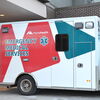
Processing Your Payment
Please do not leave this page until complete. This can take a few moments.
- News
-
Editions
-
- Lists
-
Viewpoints
-
Our Events
-
Event Info
- Business Leaders of the Year Reception 2025
- Women's Leadership Forum 2025
- On the Road with Mainebiz in Bethel
- Health Care Forum 2025
- On The Road with Mainebiz in Greenville
- On The Road with Mainebiz in Waterville
- Small Business Forum 2025
- Outstanding Women in Business Reception 2025
- On The Road with Mainebiz in Bath
- 60 Ideas in 60 Minutes Portland 2025
- 40 Under 40 Awards Reception 2025
- On The Road with Mainebiz in Lewiston / Auburn
- 60 Ideas in 60 Minutes Bangor 2025
Award Honorees
- 2025 Business Leaders of the Year
- 2024 Women to Watch Honorees
- 2024 Business Leaders of the Year
- 2023 NextUp: 40 Under 40 Honorees
- 2023 Women to Watch Honorees
- 2023 Business Leaders of the Year
- 2022 NextUp: 40 Under 40 Honorees
- 2022 Women to Watch Honorees
- 2022 Business Leaders of the Year
-
-
Calendar
-
Biz Marketplace
- News
- Editions
- Lists
- Viewpoints
-
Our Events
Event Info
- View all Events
- Business Leaders of the Year Reception 2025
- Women's Leadership Forum 2025
- On the Road with Mainebiz in Bethel
- Health Care Forum 2025
- On The Road with Mainebiz in Greenville
- + More
- On The Road with Mainebiz in Waterville
- Small Business Forum 2025
- Outstanding Women in Business Reception 2025
- On The Road with Mainebiz in Bath
- 60 Ideas in 60 Minutes Portland 2025
- 40 Under 40 Awards Reception 2025
- On The Road with Mainebiz in Lewiston / Auburn
- 60 Ideas in 60 Minutes Bangor 2025
- - Less
Award Honorees
- 2025 Business Leaders of the Year
- 2024 Women to Watch Honorees
- 2024 Business Leaders of the Year
- 2023 NextUp: 40 Under 40 Honorees
- 2023 Women to Watch Honorees
- 2023 Business Leaders of the Year
- + More
- 2022 NextUp: 40 Under 40 Honorees
- 2022 Women to Watch Honorees
- 2022 Business Leaders of the Year
- Nomination Forms
- Calendar
- Biz Marketplace
Portland suspends fee on single-use grocery bags
In hopes of reducing possible coronavirus transmission, the city of Portland has suspended the 5-cent fee it charges on single-use grocery bags.
Since 2015, the city has required food stores to collect the fee on the paper and plastic bags offered to package customer’s purchases. The goal of the measure was to encourage shoppers to bring their own, reusable bags and to prevent disposable ones from entering the waste stream.
But on Friday City Manager Jon Jennings lifted the requirement until April 30.
“The city recommends that all Portlanders not bring or use their reusable bags to any store within the city of Portland,” Jennings’ proclamation reads. “The city further recommends that stores make single-use carry-out bags readily available to their customers in order to reduce the likelihood of transmission of COVID-19.”

A 2011 study published by researchers at the University of Arizona and Loma Linda University found that “reusable bags can play a significant role in the cross-contamination of foods if not properly washed on a regular basis.”
While that study focused on contamination by bacteria, scientists say the novel coronavirus “can survive on various surfaces for hours and in some cases days,” according to a news release from Jennings’ office.
Portland’s return to single-use bags follows a decision last week to postpone a statewide ban on them.
Emergency legislation signed by Gov. Janet Mills last Wednesday pushes back the effective date of the ban from April 22 to Jan. 15, 2021. The delay is one of a variety of measures passed by the Legislature and signed by Mills in response to the pandemic. Others include the creation of no- or low-interest consumer loans, expansion of unemployment eligibility and allowances to postpone town meetings and elections.
The state ban on plastic bags passed the Legislature and received Mill’s signature last June.
In addition to Portland, Waterville might reverse its bag policy. Mayor Nick Isgro has called on the city council there to suspend the ban instituted last year on single-use plastic bags.
“Be assured this is not to re-litigate our current ordinance,” Isgro wrote in a social media post. “This should be seen as a temporary public safety measure.”
Beyond Maine, states including New Hampshire are also reconsidering the use of single-use. In New York, a statewide ban on single-use plastic shopping bags went into effect March 1, with enforcement due to begin April 1. But the state's Department of Conservation has postponed any such actions until May 15.













0 Comments